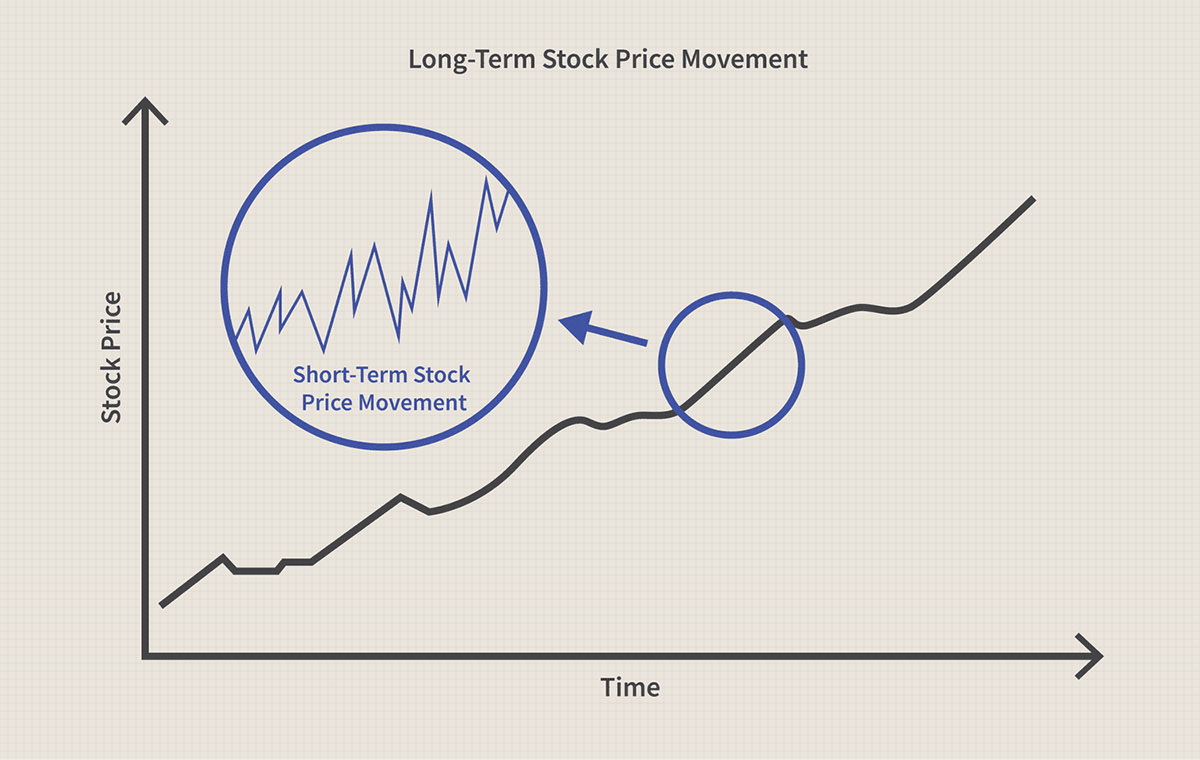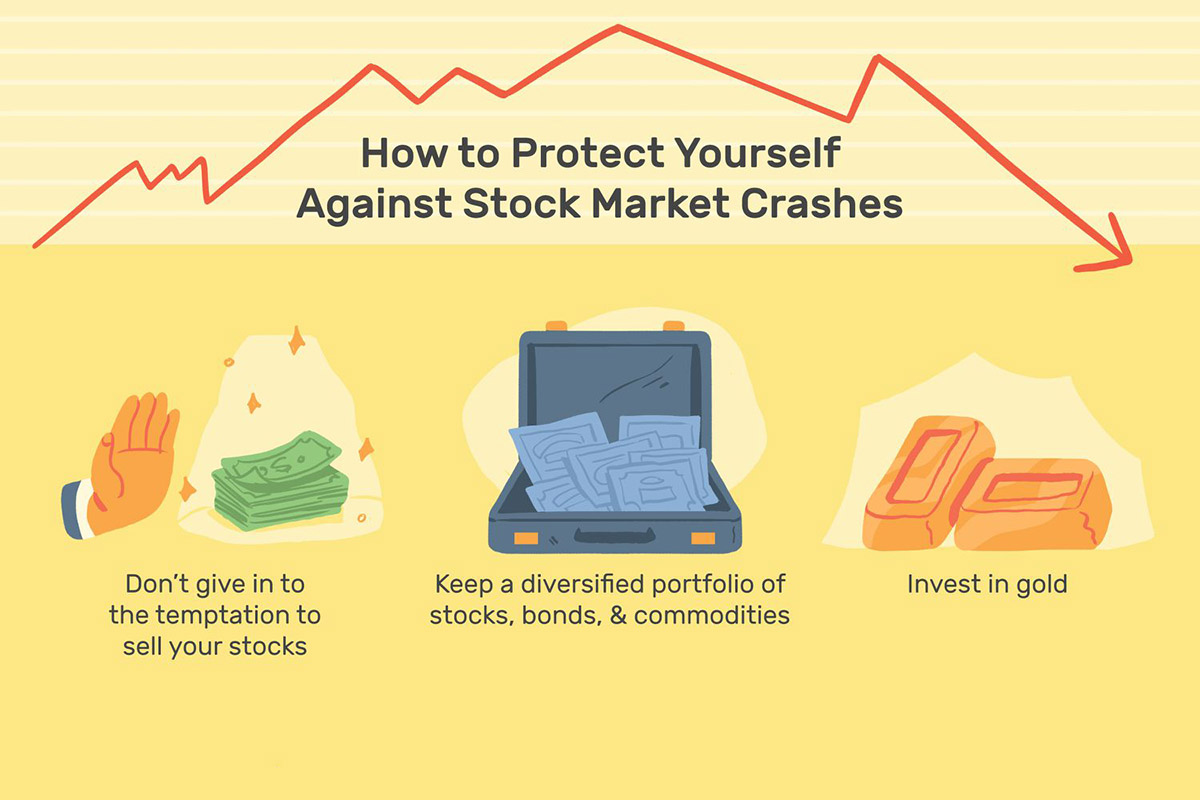

Finance
How To Say Stock Market In Spanish
Published: November 24, 2023
Learn how to say "stock market" in Spanish and expand your finance vocabulary. Discover essential finance terms in Spanish for better understanding of the industry.
(Many of the links in this article redirect to a specific reviewed product. Your purchase of these products through affiliate links helps to generate commission for LiveWell, at no extra cost. Learn more)
Table of Contents
Introduction
The stock market is a global financial marketplace where individuals and businesses can buy and sell shares of publicly traded companies. It plays a crucial role in the economy, connecting investors who are looking to put their money to work with companies seeking capital for growth and expansion.
For those who are fluent in English, navigating the stock market may seem like second nature. However, when it comes to conducting business or investing in Spanish-speaking countries, it becomes vital to understand the relevant terms and phrases related to the stock market in Spanish.
In this article, we will explore the translation of “stock market” in Spanish, delve into the nuances of the stock market in Spanish-speaking countries, and equip you with the key terms and phrases that you need to know to successfully navigate the stock market in a Spanish-speaking environment. Whether you are planning to invest in Spanish-speaking companies or looking to expand your financial knowledge, this article will provide valuable insights into the world of stock markets in Spanish-speaking countries.
So, let’s jump right in and explore the fascinating world of stock markets in the Spanish language!
Translation of “Stock Market” in Spanish
When it comes to translating the term “stock market” into Spanish, there are a few different options, depending on the specific context. The two most common translations are “bolsa de valores” and “mercado de valores.”
The phrase “bolsa de valores” is widely used throughout the Spanish-speaking world and is the most common translation for “stock market.” The term “bolsa” refers to a bag or purse, which historically represented the place where merchants would gather to trade goods. Over time, it evolved to represent a marketplace for financial transactions. Therefore, “bolsa de valores” can be understood as a “marketplace of values” or “marketplace of securities.”
Another common translation for “stock market” is “mercado de valores.” This translation emphasizes the idea of a market for securities. In Spanish, “mercado” refers to a general market or place of trade, and “valores” specifically refers to securities or stocks. Therefore, “mercado de valores” can be translated as a “market of securities” or a “market of values.”
Both “bolsa de valores” and “mercado de valores” are widely understood and used interchangeably in Spanish-speaking countries. However, it’s worth noting that there might be slight variations in usage and preference depending on the specific country or region.
For example, in Mexico, the term “bolsa de valores” is commonly used, while in Argentina, “mercado de valores” is more prevalent. It’s always a good idea to check the local terminology and usage when conducting business or investing in a specific Spanish-speaking country.
Now that we have explored the translations of “stock market” in Spanish, let’s delve deeper into the stock market environment in Spanish-speaking countries.
Understanding the Stock Market in Spanish-speaking Countries
Just like in English-speaking countries, the stock market plays a vital role in the economy of Spanish-speaking countries. It serves as a platform for companies to raise capital, allows investors to buy and sell shares, and facilitates the flow of funds within the financial system.
However, it’s important to note that the stock market landscape may vary across different Spanish-speaking countries. Each country may have its own stock exchanges, regulations, and market structure. Some of the prominent stock exchanges in Spanish-speaking countries include:
- Bolsa de Valores de Buenos Aires (Argentina Stock Exchange)
- Bolsa Mexicana de Valores (Mexican Stock Exchange)
- Bolsa de Santiago (Santiago Stock Exchange)
- Bolsa de Valores de Lima (Lima Stock Exchange)
- Bolsa de Comercio de Santiago (Santiago Stock Exchange – Chile)
- Bolsa de Valores de Colombia (Colombian Stock Exchange)
In addition to these stock exchanges, many Spanish-speaking countries also have their own regulatory bodies that oversee the financial markets. These regulators aim to maintain transparency, safeguard investor interests, and ensure fair and efficient operations.
The stock market in Spanish-speaking countries operates on the same fundamental principles as in other parts of the world. Companies issue shares, which represent ownership in the company, and investors can buy or sell these shares through the stock exchange. The stock prices are determined by supply and demand dynamics, influenced by factors such as company performance, market sentiment, and economic conditions.
Investors in Spanish-speaking countries have access to a wide range of investment options, including individual stocks, exchange-traded funds (ETFs), mutual funds, and bonds. Additionally, many countries have seen the rise of online brokerage platforms, making it easier than ever for individuals to participate in the stock market.
However, it’s essential for investors to be mindful of the varying levels of market regulation, liquidity, and investor protections across different Spanish-speaking countries. Familiarizing yourself with the specific rules and regulations of the country you plan to invest in is crucial to making informed investment decisions and managing risk.
Now that we have a better understanding of the stock market environment in Spanish-speaking countries, let’s explore some key terms and phrases related to the stock market in Spanish.
Key Terms and Phrases Related to the Stock Market in Spanish
When venturing into the stock market in a Spanish-speaking country, it’s important to familiarize yourself with key terms and phrases related to investing and trading. Here are some essential terms to help you navigate the stock market:
- Acciones – Stocks or shares in a company.
- Inversor – Investor.
- Broker or Corredor de bolsa – Stockbroker.
- Cotización – Stock quote or price.
- Índice bursátil – Stock index, such as the S&P 500 or Dow Jones Industrial Average.
- Dividendos – Dividends, which are profits distributed to shareholders.
- Volatilidad – Volatility, referring to the price fluctuations in the market.
- Orden de compra – Buy order, indicating the desired purchase of a specific stock.
- Orden de venta – Sell order, indicating the desire to sell a specific stock.
- Comisión – Commission, the fee charged by brokers for executing trades.
- Stop-loss – Stop-loss, an order to sell a stock if it reaches a certain predetermined price.
- Mercado alcista – Bull market, characterized by rising stock prices.
- Mercado bajista – Bear market, characterized by falling stock prices.
- Análisis fundamental – Fundamental analysis, evaluating a company’s financials and economic factors to determine its value.
- Análisis técnico – Technical analysis, using charts and patterns to predict future stock price movements.
These terms will help you understand conversations and news related to the stock market in Spanish-speaking countries. It’s important to continually expand your vocabulary as you dive deeper into the world of investing in Spanish-speaking markets.
Now that you are equipped with key terms and phrases, let’s move on to some tips for investing in the stock market in a Spanish-speaking environment.
Tips for Investing in the Stock Market in a Spanish-speaking Environment
Investing in the stock market in a Spanish-speaking environment can be a rewarding endeavor. Here are some tips to help you navigate the market and make informed investment decisions:
- Educate Yourself: Gain a deep understanding of the stock market, investment strategies, and the specific Spanish-speaking market you are interested in. Read books, attend seminars, and seek advice from experts.
- Stay Informed: Keep up with the latest financial news, economic indicators, and regulatory changes affecting the stock market in the Spanish-speaking countries you are interested in. This will help you make well-informed investment decisions.
- Diversify Your Portfolio: Spread your investments across different industries, sectors, and geographic locations to mitigate risk. Diversification can help offset potential losses and enhance long-term returns.
- Research Companies: Conduct thorough research on companies you are interested in investing in. Evaluate their financial health, competitive advantages, and growth potential. Look for companies with a history of strong performance and a clear business strategy.
- Understand the Local Economy: Gain insights into the economic conditions of the Spanish-speaking countries you are interested in. Understand factors such as GDP growth, inflation rates, political stability, and regulatory frameworks, as these can impact the performance of the stock market.
- Consider Working with a Local Broker: Partnering with a local brokerage firm can provide valuable insights, local market expertise, and assistance in navigating the stock market in a Spanish-speaking country. They can help you understand the local regulations, execute trades, and provide personalized investment advice.
- Manage Risk: Set realistic investment goals and assess your risk tolerance. Only invest amounts that you are comfortable losing and diversify your investments. Regularly review and adjust your portfolio to align with your risk tolerance and investment objectives.
- Stay Disciplined: Develop and stick to an investment plan. Avoid making impulsive investment decisions based on short-term market fluctuations. Remember that successful investing requires patience, discipline, and a long-term perspective.
- Adapt to Cultural Differences: Be mindful of cultural differences and business practices in the Spanish-speaking countries you invest in. Understanding local customs and forming relationships with local partners can help create a smoother investment experience.
By following these tips, you can navigate the stock market in a Spanish-speaking environment with confidence. Remember that investing involves risk, and it’s always wise to seek professional advice or conduct your own thorough research before making any financial decisions.
Now, let’s wrap up our discussion.
Conclusion
Investing in the stock market in a Spanish-speaking environment can be an exciting and rewarding experience. Understanding the translation of “stock market” in Spanish, as well as the dynamics and key terms associated with the stock market in Spanish-speaking countries, is essential for success.
Whether you are looking to expand your investment portfolio or engage in business opportunities in Spanish-speaking countries, having a grasp of the local stock market environment is crucial. Familiarize yourself with the specific terms and phrases used in the stock market, stay informed about local market conditions, and consider partnering with local experts to facilitate your investment journey.
Remember, investing in the stock market involves risk, and it’s important to conduct thorough research, diversify your portfolio, and stay disciplined in your investment approach. Continuously educate yourself, adapt to cultural differences, and make informed decisions based on a combination of fundamental and technical analysis.
By applying these tips and guidelines, you can effectively navigate the stock market in a Spanish-speaking environment and potentially capitalize on investment opportunities in countries such as Argentina, Mexico, Chile, and Colombia, among others.
So, whether you’re saying “bolsa de valores” or “mercado de valores,” you are now equipped with the knowledge and understanding to explore the world of stock markets in Spanish-speaking countries. ¡Buena suerte en sus inversiones!














